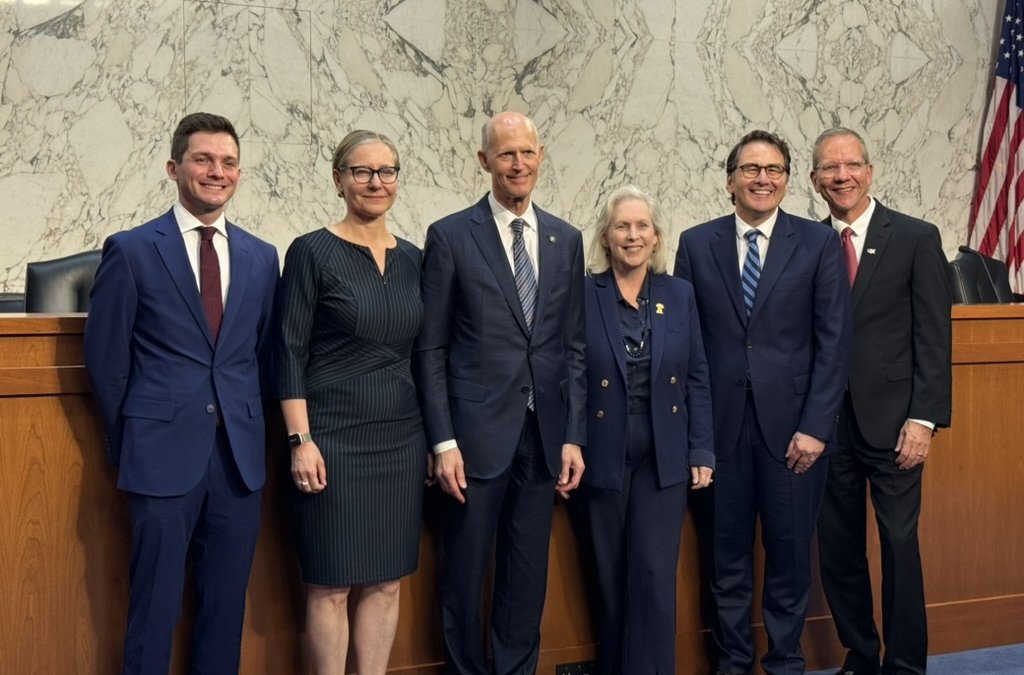WASHINGTON – Lawmakers and experts argued that the U.S. supply chain’s overreliance on foreign-manufactured medicines, particularly from China and India, poses both health and national security risks during a Senate hearing on Wednesday.
The Senate Special Committee on Aging held the hearing after a recent ProPublica investigation uncovered that the FDA silently allowed over 20 overseas factories to continue sending medicines to the U.S., even though they were manufactured at plants the agency had banned because of contamination and other violations.
“The federal government needs to ensure access to safe and high-quality drugs now,” said Committee Chairman Sen. Rick Scott (R-Fla).
On Tuesday, Sen. Scott urged Department of Commerce Secretary Howard Lutnick and U.S. Trade Representative Ambassador Jamieson Greer to place tariffs on foreign-made generic drugs. He also announced legislation on country of origin labeling for prescription drugs.
Other solutions proposed during the hearing included establishing a federal buyer’s market, strengthening the oversight of foreign manufacturing facilities, and increasing domestic government contracts.
“Americans shouldn’t have to worry about the quality of their prescriptions, whether they’re safe to be able to take, whether they’re effective, what will happen if the supply chain breaks,” said Sen. Elizabeth Warren (D-Mass.). “And for me, that’s reason enough to manufacture right here in the United States, and using federal contracts to lower those production costs.”
Tony Sardella, founder of the API Innovation Center, said that 83 of the top 100 generic drugs consumed by U.S. citizens lack a U.S.-based source for their active pharmaceutical ingredients (APIs). As of 2022, 91% of all prescriptions in the U.S. are for generic medicines, according to the FDA Office of Generic Drugs.
A study of FDA warning letters headed by Sardella found that one in every four prescriptions in the U.S. is supplied by a facility that has received an FDA violation since 2020.
“We don’t want to be alarmist,” said Sardella. “Some of these are very simple paper and procedural warning letters, but it does include others where there’s more severe issues, quality issues, safety issues, manufacturing issues, impurity issues.”
Lawmakers also discussed the danger of relying on drugs manufactured overseas and the national security risks.
Ranking Member Sen. Kirsten Gillibrand (D-N.Y.) said the long-term cost of poorly-manufactured medicines and risks to national security is likely much higher than the cost of compounding and manufacturing these drugs in the U.S..
“If we’re at war with China, and you can’t get antibiotics into this country, and how many millions of people die, the cost of that is trillions of dollars. It’s incomprehensible,” she said.
Dr. Marta E. Wosińska, Senior Fellow at the Center on Health Policy at The Brookings Institution, said the level of engagement and bipartisan cooperation by legislators was “striking.”
“I was really, really glad to see this hearing being put on by Senate Aging,” she said, “because the members of this committee sit on a lot of really other critical committees of jurisdiction where they can actually put a lot of these policies in place.”
Despite all of the concerns about where the drugs originate, Dr. Wosińska stresses the importance of continuing to take prescribed medicine.
“It’s still much better to take a Chinese drug than not to take one,” she said.

